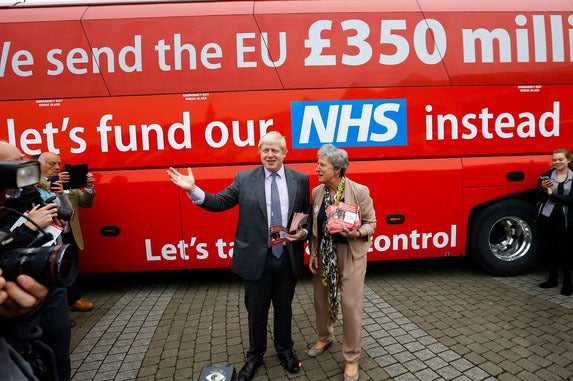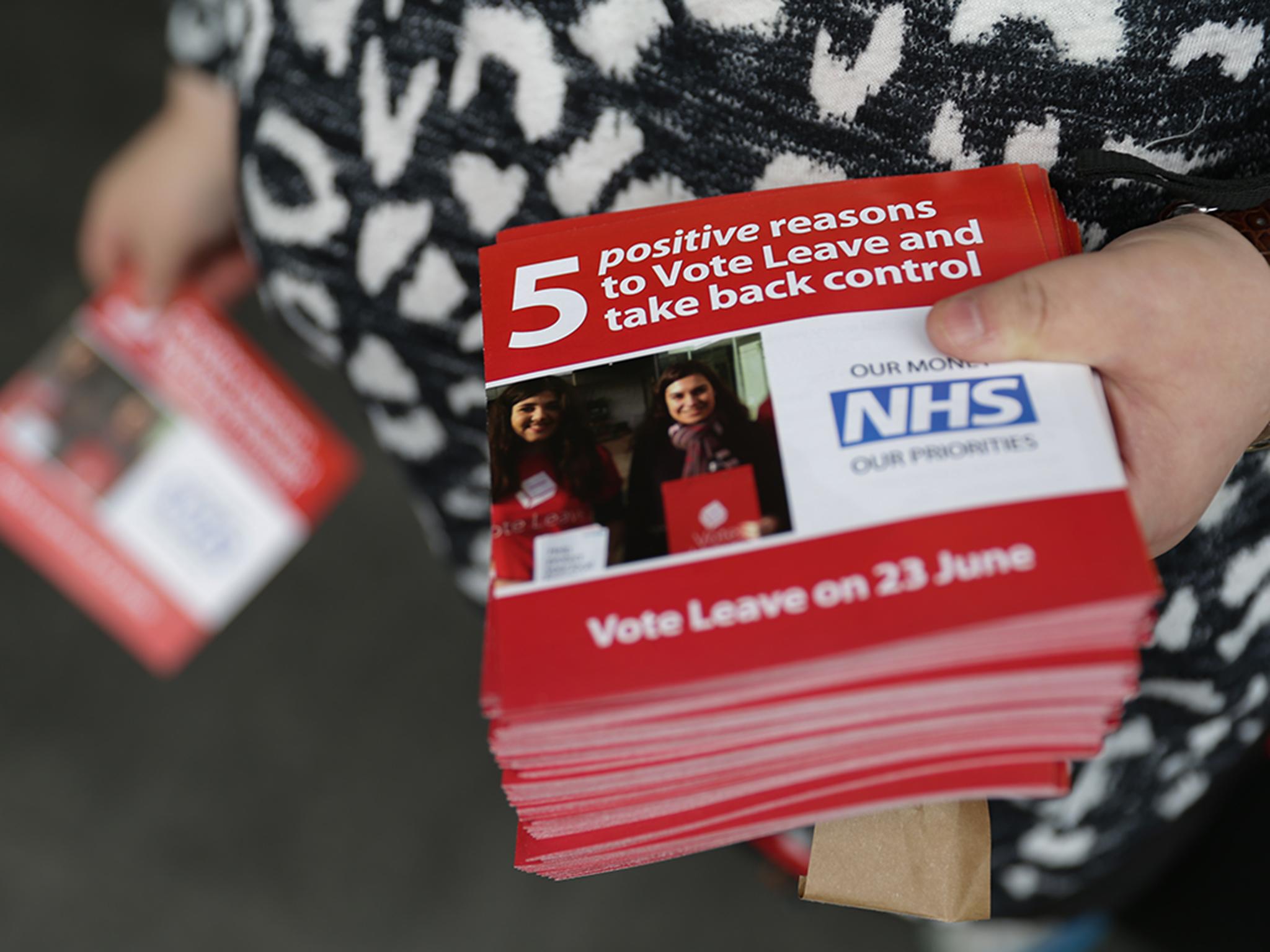Your support helps us to tell the story
From reproductive rights to climate change to Big Tech, The Independent is on the ground when the story is developing. Whether it's investigating the financials of Elon Musk's pro-Trump PAC or producing our latest documentary, 'The A Word', which shines a light on the American women fighting for reproductive rights, we know how important it is to parse out the facts from the messaging.
At such a critical moment in US history, we need reporters on the ground. Your donation allows us to keep sending journalists to speak to both sides of the story.
The Independent is trusted by Americans across the entire political spectrum. And unlike many other quality news outlets, we choose not to lock Americans out of our reporting and analysis with paywalls. We believe quality journalism should be available to everyone, paid for by those who can afford it.
Your support makes all the difference.The pledge by Vote Leave to spend £350m a week on the NHS after Brexit was just an “example” of how such cash could be allocated, the organisation’s chair has said.
Gisela Stuart, who co-chaired the official campaign to leave the EU, downplayed the policy, which her organisation emblazoned on the size of a large red bus during the campaign.
“No, the NHS was the example of that if you’re spending that amounts of money and you don’t have control of what to do with it, I would spend it on the NHS. It was about taking control of your spending decisions,” the eurosceptic Labour MP told the BBC’s Daily Politics programme
The morning of the EU referendum result Nigel Farage, who was not affiliated with Vote Leave but also did not speak out against the £350m figure during the campaign, dismissed the pledge as a “mistake”.
“No I can’t [guarantee spending £350m on the NHS], and I would never have made that claim. That was one of the mistakes that I think the Leave campaign made,” he said just hours after the votes were counted.
The claim comes shortly after other proposals by the Leave campaign, including a points-based immigration system, fade into the distance.
A poll conducted a week before the referendum by Ipsos MORI found that 47 per cent of the public believed the false claim that the UK pays £350m a week to the EU.
Just 39 per cent realised the figure, which formed the centerpiece of the Leave campaign, was false, while 14 per cent did not know.

Sir Andrew Dilnot, chair of the UK Statistics Authority, said in May that he was disappointed that the Brexit campaign continued to make the claim as it was “misleading and undermines trust in official statistics”.
The figure in fact neither includes Britain’s rebate, nor money paid back to the UK through the Commons Agricultural Policy, regional development funding, scientific grants, or cultural grants. It also does not take into account the benefits to the public finances of increased economic activity that comes from being a part of the EU.
In fact, the independent and respected Institute for Fiscal Studies has said the net effect of leaving the EU would be for a £36bn black hole in the public finances to open up during the spending period as a result of lower growth and tax revenue.
The Government is now considering how exactly Britain will leave the EU, although it has not yet officially secession triggered negotiations.

Join our commenting forum
Join thought-provoking conversations, follow other Independent readers and see their replies
Comments